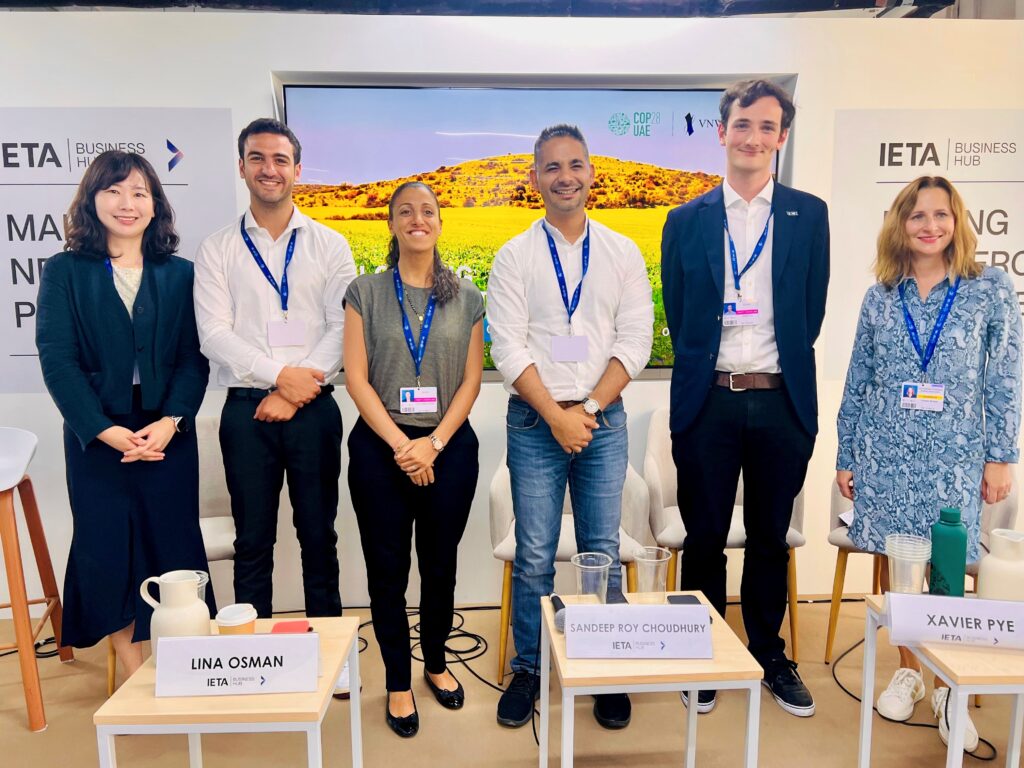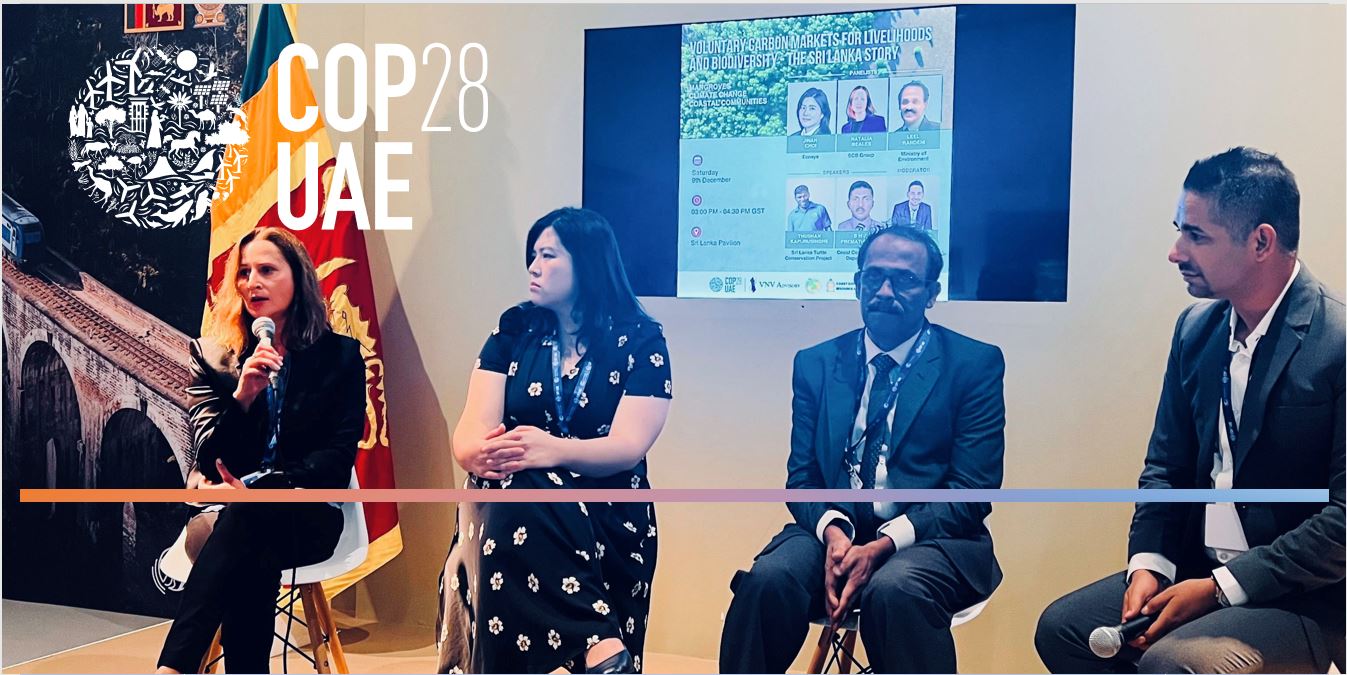COP28 featured some important announcements, which are set to change the landscape of the Voluntary Carbon Market, here’s our wrap.
Independent Crediting Programmes, including The Gold Standard and Verra agreed to collaborate on the integrity and effectiveness of carbon crediting initiatives. These organizations leverage decades of experience, and are enhancing the private sector’s ability to finance real, additional, and durable mitigation outcomes.
The collaboration emphasizes the importance of continuous improvement in quality through the incorporation of new scientific and technological developments, thereby elevating the rigor of these programs.
In addition, six international organisations including The Science Based Targets initiative, GHG Protocol and the ICVCM and VCMI will be setting up an End-to-End Integrity Framework. See the joint animation and infographic here. The Carbon Herald comments:
“The end result of the collaboration will provide a higher level of alignment between the parties and is aimed at solving one of the emerging challenges of the market – having a unified and clear standard for project developers, intermediaries and buyers of carbon credits.”
Progress was made on the Paris Agreement Article 6 and corresponding adjustments. Verra applied the Article 6 labels to VCUs issued to a project established by SCB’s partner the DelAgua Group for a community-based project in Rwanda. SCB not only finances the project, just last year, SCB senior managers visited the Live Well Clean Cookstove Programme. Read more on our visit here.
“We are very proud to be a part of this high impact clean cooking project in Rwanda, which helps to narrow a huge GHG emission gap we currently have while also channelling finance to the first responders to climate crisis, wonderful people of Rwanda” comments Natalia Beales, Head of Carbon at SCB Group.
The Voluntary Carbon Markets Integrity initiative (VCMI) released additional guidance for its Claims Code of Practice including a Monitoring Reporting and Assurance Framework comprising Silver, Gold or Plantinum claims to go above and beyond sience-aligned emissions cuts. It also launched the beta version of a new claim, the ‘Scope 3 Flexibility Claim’ planned for 2024, which gives flexibility to corporates reporting on non-direct emissions through a company’s value chain.
The U.S. Government Commodities Future Trading Commission (CFTC) proposed guidance on the listing of voluntary carbon credit derivative contracts. The proposed guidance has been made available for public comment until February 2024.
U.S. Special Presidential Envoy for Climate, John Kerry said at COP28: “Voluntary carbon markets can be a powerful tool for mobilizing the investment in innovative technologies and actions needed to keep a 1.5 C limit on warming within reach. ”

In a COP28 panel with SCB Partners VNV Advisory and IETA on 10 December, Natalia shared insights on Unlocking Opportunities in the MENA Region’s Evolving Carbon Markets. The panel discussion touched upon the need of having proper governance, clear framework and regulation in the VCM. It also explored the emerging opportunities within the evolving carbon markets of the Middle East and North Africa (MENA) region. As nations in the MENA region increasingly focus on sustainable climate action and more national carbon programs begin operations, understanding the dynamics of carbon markets becomes integral to harnessing the full potential for positive environmental and economic impact.
Natalia also spoke at another COP28 session organised by VNV Advisory, on empowering adaptation of coastal communities on the front lines of the climate crisis through mitigation. Co-hosted by the Sri Lanka Turtle Conservation Project and the Coast Conservation and Coastal Resource Management Department of Sri Lanka (CCD), this session—with a panel of dynamic experts delved into ‘Mangroves’ as a systemic solution to long-term coastal resilience. The panel also covered the importance of carbon finance for communities in vulnerable to climate crisis countries and how people, livelihoods, lives and biodiversity are at the core of the climate action.



